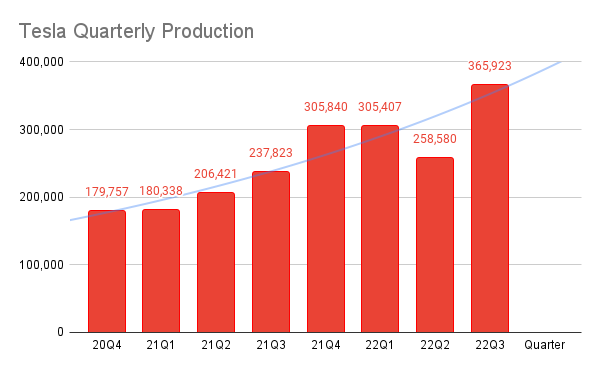I recently posted a story called "No Good Choices" about a friend who's shopping for an EV and he has dismissed Tesla as an option because he "does not like Musk's shenanigans on Twitter." During the discussion, I started defending Musk and it seemed like this was just causing a backfire effect, making him to further entrench in his disdain for the man. Clearly, a different tactic was needed.
This got me wondering, how many other companies does he apply this "do I like the CEO" metric to? Does he research the CEO of Coke or Pepsi before having a cola? Does he look into the actions of Frito-Lay's president before eating Doritos? Probably not, but he's not required to do so.
Musk has leveraged his position to obtain a level of fame that few CEOs have achieved. This public image is, however, a two-edged sword. Combine this notoriety with Musk's unapologetic insolent Twitter persona and he is going to rub some people the wrong way.
So how did we get here?
I would argue that a personality like Musk's is the only type of leader that could have pulled off taking Tesla from zero to the big success that it is currently. A decade ago, Tesla's success was far from assured. It takes someone as stubborn and insolent as Musk to keep moving forward with a vision while the majority of the experts are saying that it is impossible and it's doomed to fail. When the experts repeatedly say there's no demand, when suppliers won't return your calls, when you have to risk your entire fortune to make payroll and build parts in-house because there's no other way to get completed cars out the door, you have to be obstinate to your core. When this was a requirement for success, to now expect Musk to be a "chill normal dude" is unrealistic. The trials that Tesla has faced nearly guarantee that the person at the head of the company will be obdurate.
This is not to excuse his behavior or to dismiss how some people may feel about his tweets. So what to do about the people that are triggered by Musk's online persona? Just give up on them? No. Anyone shopping for a car (or anything else), should buy a product that will meet their needs and bring them joy. If buying a Tesla would make someone feel like they are endorsing things that Musk has said that they don't agree with, then a Tesla would not bring them joy and they should buy something else. There are plenty of other people willing to buy Tesla's vehicles and there are EVs out there from other car companies that need customers too. However...
I'd like to present the case that anyone shopping for an EV should buy the product that best fits their personal needs. Regardless of the company's history or the leadership. It is perfectly fine to buy a Tesla and disagree with Musk. Despite what you may have heard (and the behavior of some owners), it is not. a. cult.
When you are shopping for an EV, look at your budget, your requirements for range, passenger room, cargo space, recharging time, charging locations/network, performance, style... and then buy the car that best fits your needs and budget; Tesla or not.
Should you avoid buying an EV from Volkswagen today because of the company's role in WWII or because of Diesel-gate? I'm sure there are people that avoid VW for these reasons and others. However, I would argue that buying an EV from VW is encouraging them to do the right thing going forward. It helps them put their Diesel products into their past. Look closely into any large company and you'll certainly find blemishes.
The real problem, IMHO, is not what someone tweeted yesterday, but our worldwide use of fossil fuels. Any EV placed in service today is one gas car off the road. As more and more renewable energy sources are added to the grid, these EVs become powered by those renewable sources. The transition of the world's vehicle fleet will take decades. We need to move quickly to a future free from fossil fuels. The transition of the world's electrical grids to 100% renewable will take decades. These decades-long transitions are time that we may not have to avoid the worst impacts of climate change. I find the fretting about who tweeted what about who to be rearranging deckchairs on the Titanic as it's sinking.








